| | | | | | | Presented By Facebook | | | | Axios AM | | By Mike Allen ·Sep 11, 2021 | | Welcome to this special edition of Axios AM on the 20th anniversary of 9/11. - Smart Brevity™ count: 1,555 words ... 5½ minutes. Issue led by Dave Lawler, author of Axios World. Edited by David Nather and Sara Kehaulani Goo.
| | | | | | 1 big thing: Fighting terror goes remote | 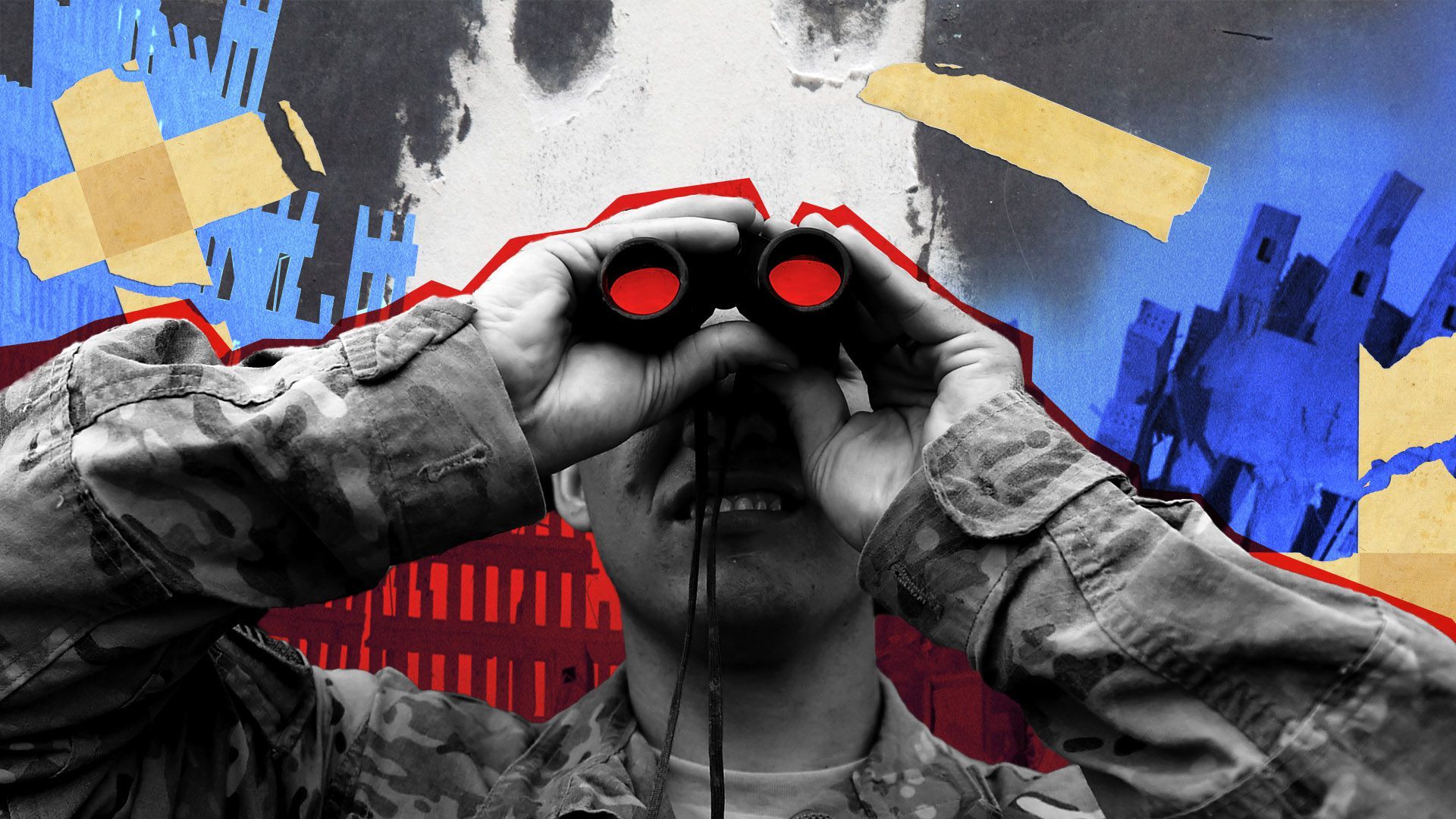 | | | Photo illustration: Sarah Grillo/Axios. Photos: Wakil Kohsar, Chris Hondros/Getty Images | | | | Twenty years after 9/11, U.S. counterterrorism relies more on drones in the air than boots on the ground, Axios' Dave Lawler and Zach Basu report. - Why it matters: The days of a massive military presence to battle international terrorists are over.
- Now the fight is focused on monitoring and striking a broader range of terrorist groups from a distance.
Michael Morell, former acting CIA director, told Axios: "We've learned in the last 20 years that ... huge armies on the ground are actually a bad idea because they incentivize people to join terrorist groups." - Instead, the focus is on providing partners on the ground in places like Syria or Africa's Sahel region with drones, air support and intelligence, says retired Gen. David Petraeus, who led U.S. Central Command and the CIA.
- That's insufficient to truly eliminate the threat, Petraeus says. But it can be sustained over decades by limiting U.S. costs and casualties.
The catch: A successful remote approach requires precise intelligence and allies on the ground. And in Afghanistan, the Taliban's takeover has drawn the U.S. back into uncharted waters. State of play: In Afghanistan, the abandonment of U.S. bases and the evacuation of CIA sources have decimated U.S. intelligence capabilities. - Biden's "over-the-horizon" strategy (from outside the country) will require sending drones from the Gulf, over Pakistan — assuming the Pakistanis consent — and into Afghanistan.
- "Well over 50% of the flight time" could be used just getting to and from Afghanistan, Petraeus says.
An over-the-horizon strike in Kabul on Aug. 29 — to prevent what the administration described as an imminent ISIS attack — reportedly left 10 civilians dead, including seven children. What we're watching: Critics contend that the 9/11 attacks gave rise to 20 years of overestimating the global threat of jihadi terrorism — while allowing adversaries, including China, to catch up as successive U.S. administrations spent trillions prosecuting the war on terror. - "When people are trying to kill you — literally trying to kill you — it's hard not to put most of your focus there," Morell says. "Maybe even more focus than you should."
Go deeper. |     | | | | | | 2. Next time, it could be online | 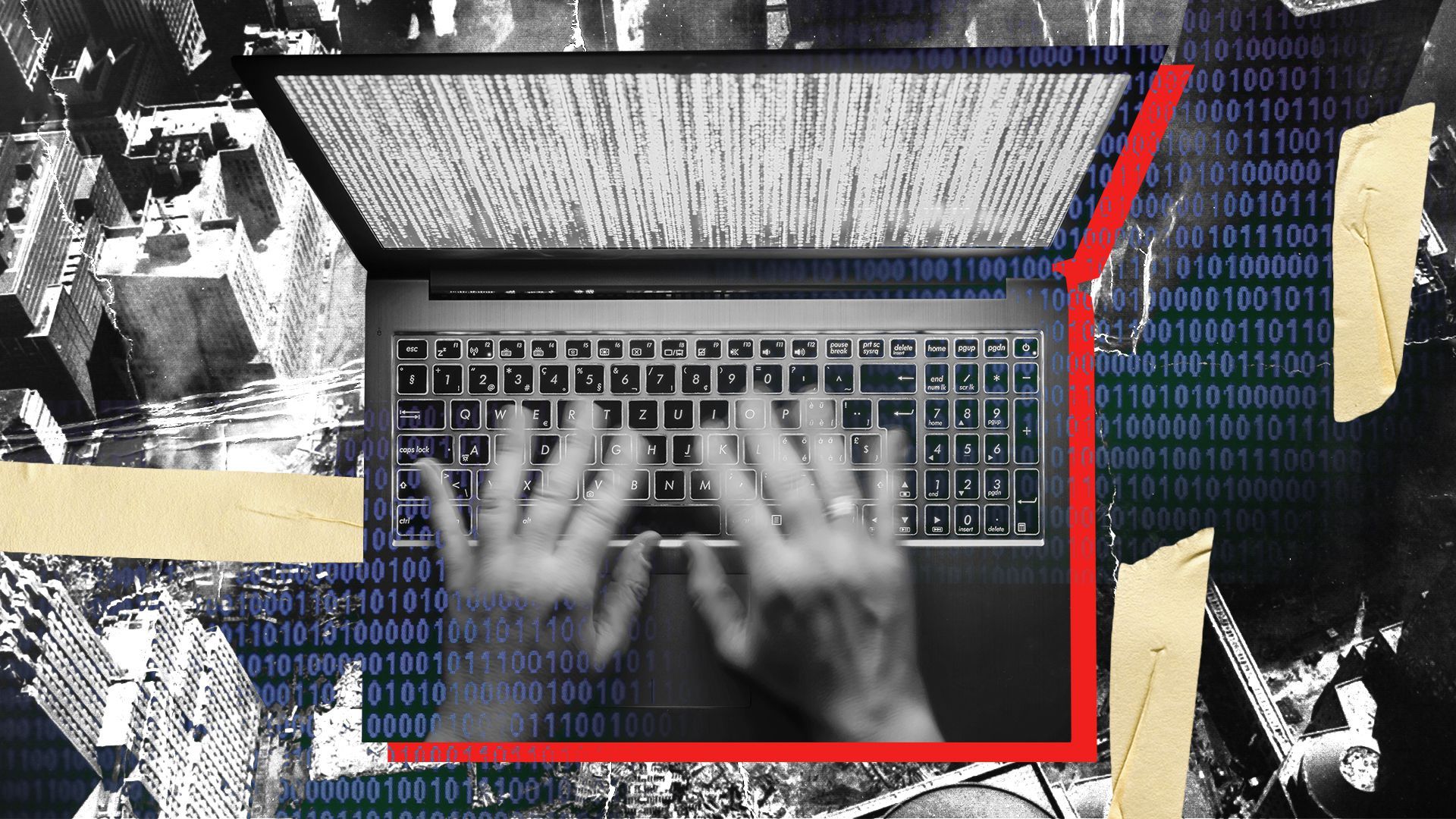 | | | Photo Illustration: Annelise Capossela. Photo: Universal History Archive/Universal Images Group via Getty Images | | | | The 9/11 attacks had little in the way of a significant digital dimension. But today, the digital realm offers perfect terrain for the kind of asymmetric warfare terrorists pursue, Axios' Scott Rosenberg reports. Cyberattacks lack the spectacular kinetic impact of planes hitting skyscrapers. - But they're highly effective at instilling the kind of fear, confusion and overreaction that terrorists seek to spark.
- They're hard to track and easy to disavow.
All of that makes a cyberattack an ideal weapon for disrupting everyday life. - Remember the trouble caused earlier this year when one ransomware attack shut down a gas pipeline.
Keep reading. |     | | | | | | 3. Today's toll | 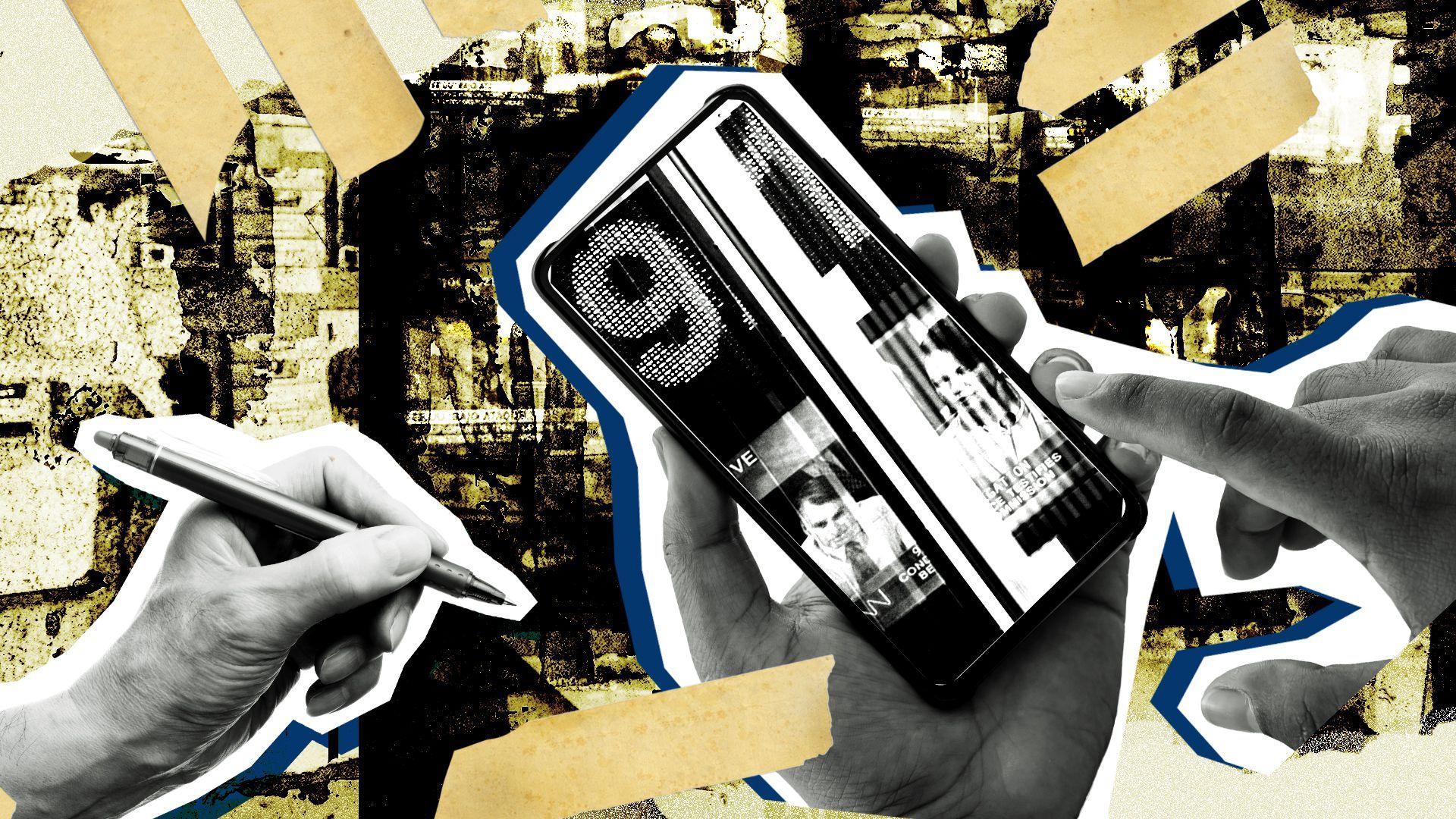 | | | Photo illustration: Shoshana Gordon/Axios. Photos: Andrea Nieto, Susana Gonzalez, Mario Tama/Getty Images | | | | Two decades later, our lives remain different because of 9/11, from air travel headaches to fear-driven politics: War powers: The 2001 Authorization for Use of Military Force was so broad that it has been used by four American presidents to justify military operations around the world, Axios' Zachary Basu reports. - While it initially applied to al-Qaeda and the Taliban in Afghanistan, the law's blank-check language has been cited for operations in Iraq, Yemen, Somalia, Libya, Syria, Niger, Djibouti, Ethiopia, Eritrea, Kenya and the Philippines, as well as the indefinite detention of prisoners at Guantánamo Bay.
Air travel: 9/11 changed the entire experience of flying, Axios executive editor Sara Kehaulani Goo writes. - The U.S. government created two new agencies (TSA and the Homeland Security Department), spent billions on screening equipment, and instituted security procedures at airports that have been copied at major public events and schools around the country.
Privacy: The attacks changed our willingness to give up privacy to make air travel — and many other transactions — more convenient, Sara adds. - Private companies found that Americans were willing to pay hundreds of dollars and give up some privacy — a face scan, a fingerprint, personal details — for the ability to skip more time-consuming screening of their bags and clothing at checkpoints.
Security: Cities became less open, Axios' Jennifer Kingson writes. - No longer can anyone walk into an office building in New York City (and many other places) and take the elevator up to any floor. We show a license or other ID, sometimes have a photo taken, sign a register, and have our host put us on a list or call down to a guard.
Tech: The internet of 2021 was born in the ashes of 2001, Axios' Scott Rosenberg writes. - When the Twin Towers fell, the first news of the disaster was posted online by a theater blogger. (G0 deeper.)
- The aftermath exposed every one of the internet vulnerabilities we've grown to understand since — the rise of conspiracy theories, political polarization and online echo chambers; the spread of hate speech; and the diminishing potency of facts.
Racial profiling: The attacks drew focus to the way law enforcement profiles Arab Americans and Muslim Americans and the discrimination they face, Axios' Russell Contreras reports. - The Patriot Act and the way innocent Arab Americans and Muslim Americans experienced harsh questioning at airports, ports of entry and in public places drew scrutiny in the years following the attacks and foreshadowed the current reckoning with systemic racism.
Read the full story. |     | | | | | | A message from Facebook | | Internet regulations are as outdated as dial-up | | |  | | | | Facebook supports updated regulations, including four areas where lawmakers can make quick progress: - Reforming Section 230.
- Preventing foreign interference in our elections.
- Passing federal privacy law.
- Setting rules that allow people to safely transfer data between services.
| | | | | | 4. Latest legacy: Afghan refugees | 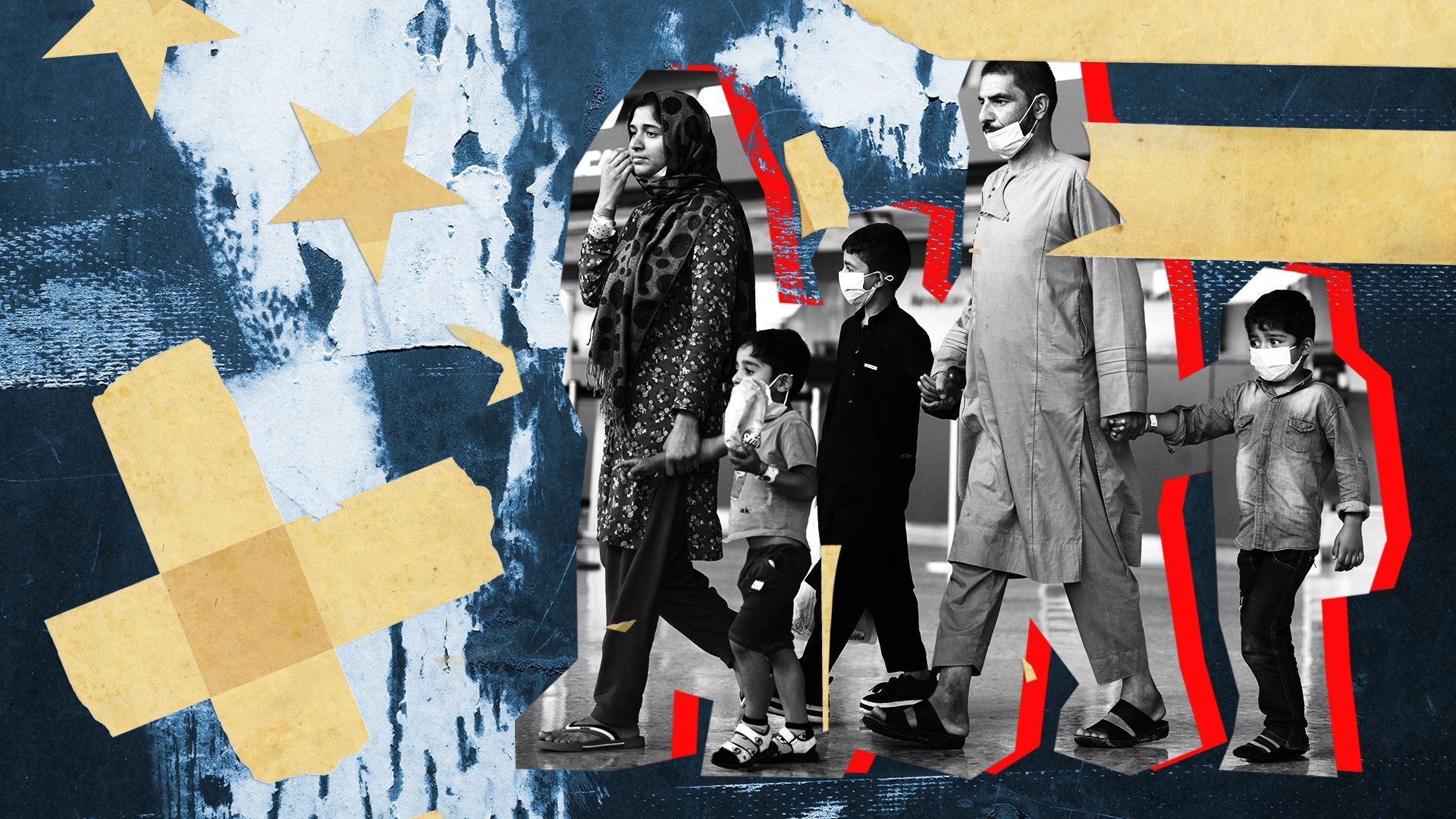 | | | Photo illustration: Shoshana Gordon/Axios. Photo: Anna Moneymaker/Getty Images | | | | Tens of thousands of Afghans have arrived in the U.S. over the last several weeks. President Biden now needs Congress' help to provide care and expedited immigration pathways, Axios' Stef Kight reports. - Why it matters: These refugees will be one of the lasting legacies of 9/11 and the 20-year war in Afghanistan that ended with America's withdrawal last month.
The administration and a network of refugee groups are scrambling to help Afghans still trying to get out, who were caught up in a slow, outdated immigration system. - The rapid fall of Kabul and a cumbersome Special Immigrant Visa process left behind most Afghans who assisted the U.S. military.
What to watch: The administration expects 65,000 Afghans to arrive by the end of this month — plus as many as 30,000 over the course of the fiscal year beginning Oct. 1. Go deeper. |     | | | | | | 5. Taking the Hill | 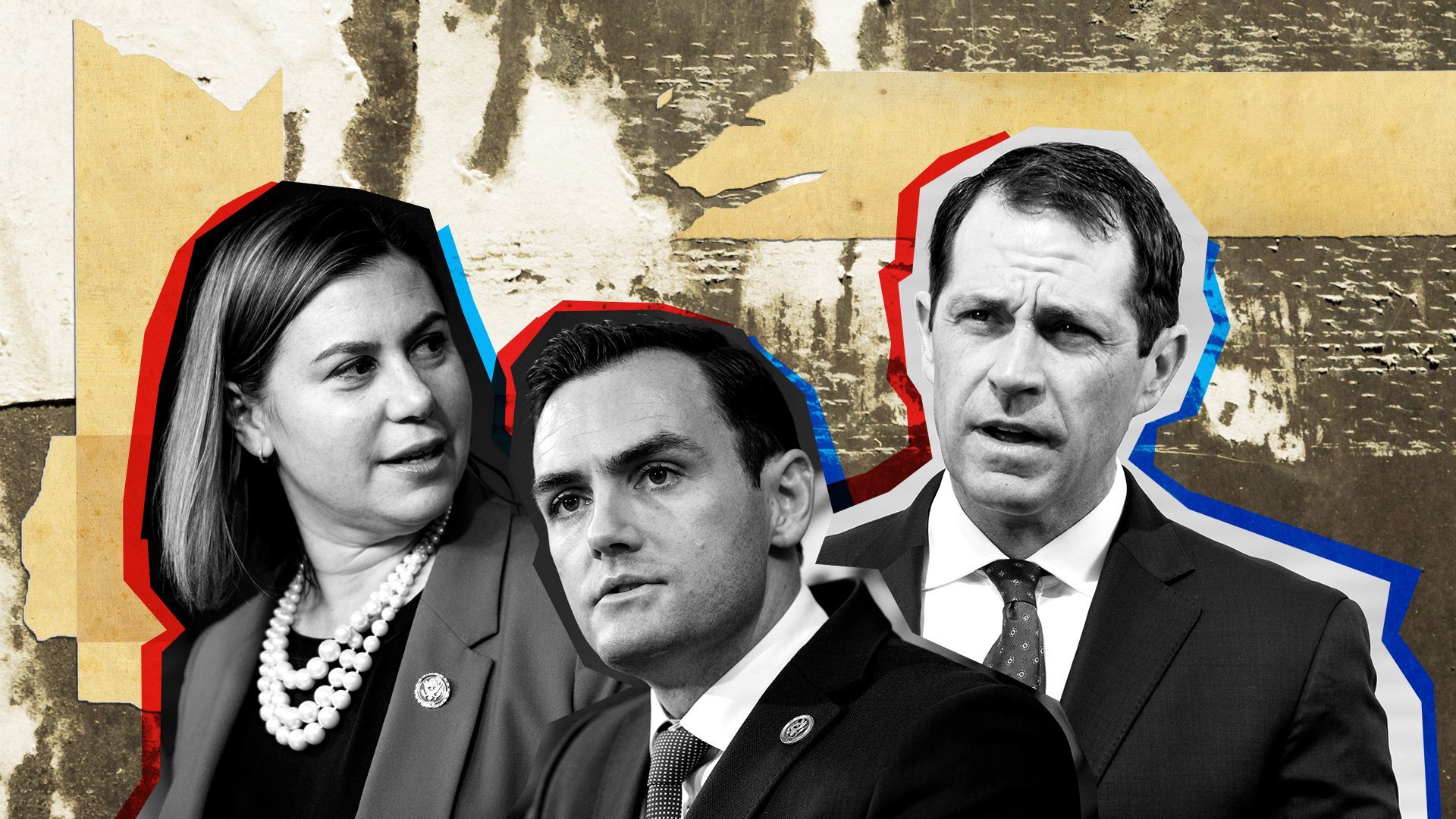 | | | Photo illustration: Sarah Grillo/Axios. Photos: Bill Clark/CQ Roll Call, Inc via Getty Images | | | | Rep. Mike Gallagher (R-Wis.) was a high school senior when the Twin Towers were hit. For Rep. Elissa Slotkin (D-Mich.), it was her second day as a grad student at Columbia University. Rep. Jason Crow (D-Colo.) was a National Guardsman but would soon switch to active duty. - The 9/11 attacks prompted a generation of Americans to serve their country. Dozens now hold seats in Congress, and more are signing up to run in next year's midterms, Axios' Sarah Mucha reports.
91 U.S. veterans serve in Congress. Of those, at least 36 served in Afghanistan and Iraq — 27 are Republicans and 9 are Democrats. Read the full story. |     | | | | | | 6. Facing fear | 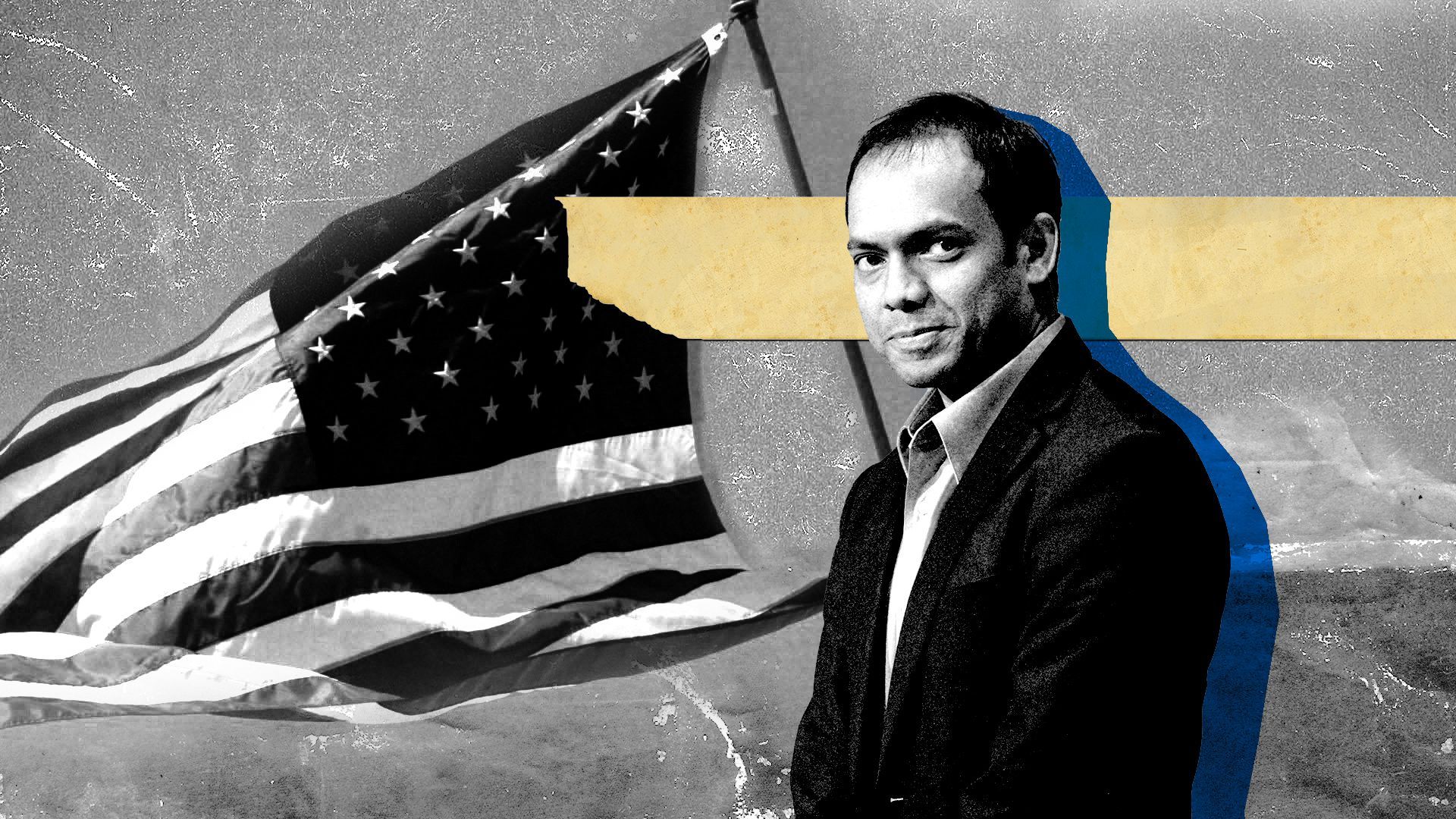 | | | Photo illustration: Brendan Lynch/Axios. Photos: Leigh Vogel and Richard Pruitt/Getty Images | | | | In Dallas in the weeks after the attacks, a white supremacist named Mark Stroman went on a violent spree he said was for revenge, killing two men and shooting a third, Bangladeshi immigrant Rais Bhuiyan, in the face, Axios' Michael Mooney reports from Dallas. - Bhuiyan forgave Stroman, who was sentenced to death for the crimes, and has since dedicated his life to ending hate — even unsuccessfully suing the state of Texas in an attempt to stop the execution.
- Since then, Bhuiyan has started a nonprofit called World Without Hate, dedicated to preventing and disrupting hate and violence through empathy and storytelling.
Bhuiyan thinks about the day he was shot every day. He still has 33 shotgun pellets in his face. And he remains blind in his right eye. - "The only place I feel safe in America is once I pass the security checkpoint in an airport," Bhuiyan told Axios. "When I go to the grocery store, I know someone could walk in with an AR-15."
Keep reading. Sign up for the Axios Dallas newsletter, launching in October. |     | | | | | | 7. Still healing | 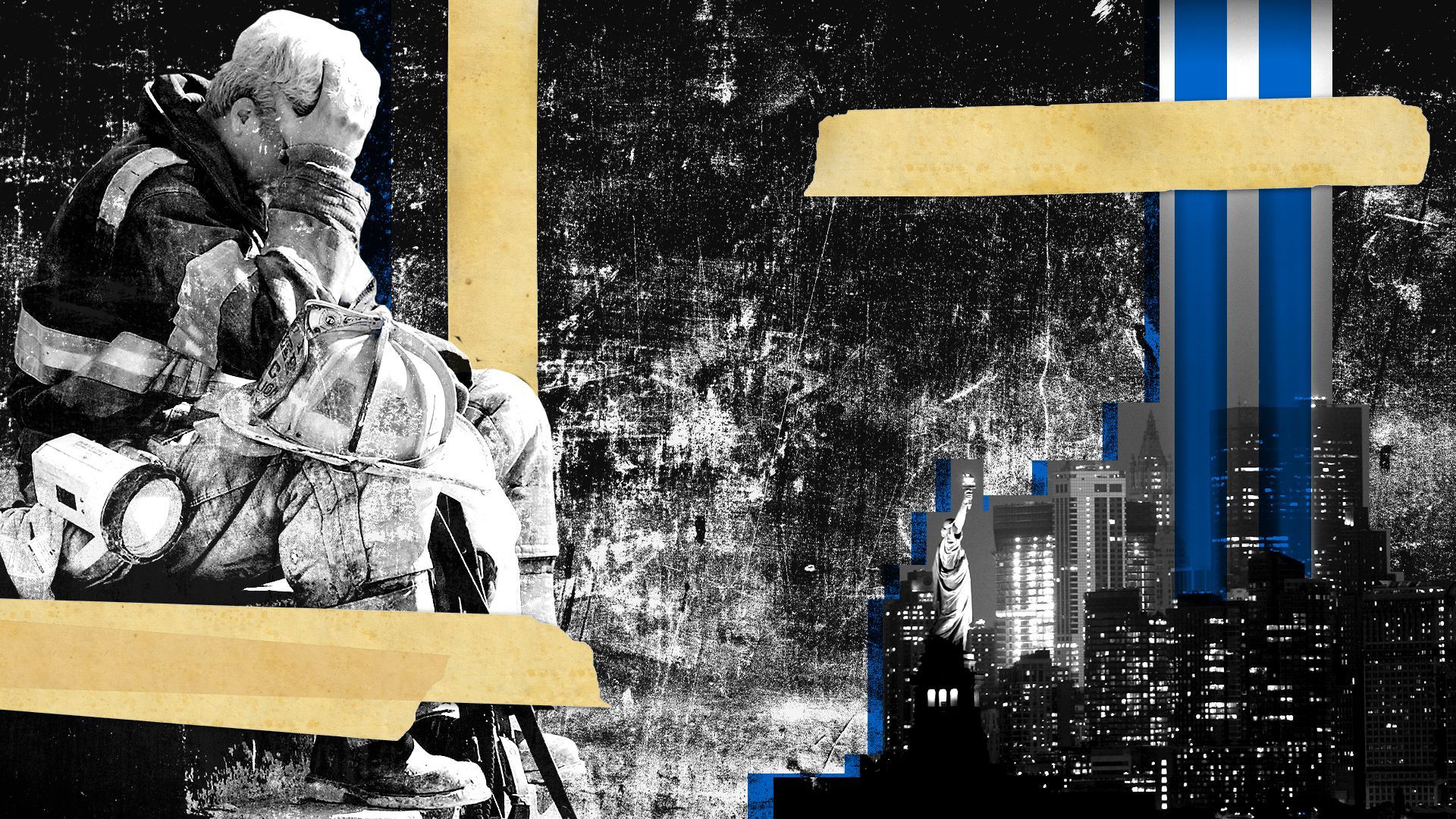 | | | Photo illustration: Aïda Amer. Photos: Stan Honda/AFP via Getty Images | | | | In the days after the Sept. 11 attacks, Kevin Tuerff found himself stranded along with other airline passengers in Gander, a town on an island of Newfoundland, Axios' David Nather reports. - For the 20th anniversary, his 9/11-inspired organization, Pay It Forward, wants people to perform 20,000 "random acts of kindness."
- He's also pushing Americans to break out of their silos and do the good deeds for people they'd never meet otherwise.
For four days in September 2001, the people of Gander gave the stranded travelers rides to stores and provided phones to let them make calls anywhere in the world, for free. - "The question we should ask ourselves," Tuerff says, "is, why does it take a terrorist attack, a natural disaster or a pandemic for us to be kind and compassionate?"
Keep reading. |     | | | | | | A message from Facebook | | Why Facebook supports reforming Section 230 | | |  | | | | The internet has changed a lot in the last 25 years — the last time comprehensive internet regulations were passed. Facebook supports updated regulations — like reforming Section 230, to set standards for the way larger tech companies enforce rules about content. | | | | 🚲 Sunday at 11 a.m. ET/8 a.m. PT, Axios' Dan Primack is leading a Peloton fundraising ride to benefit Tuesday's Children, which was formed after 9/11 to help families of victims and first responders. Today it helps all families affected by terrorism, military conflict and mass violence. Thank you for reading. Share this Deep Dive here. |  | | It'll help you deliver employee communications more effectively. | | | |












No comments:
Post a Comment